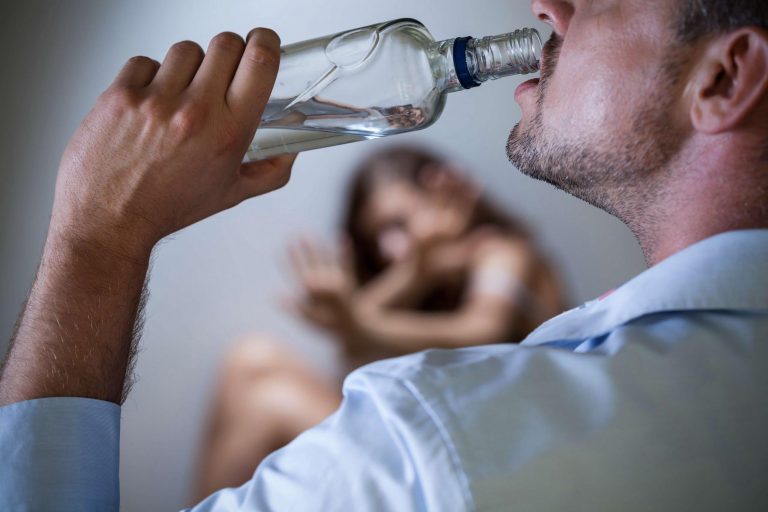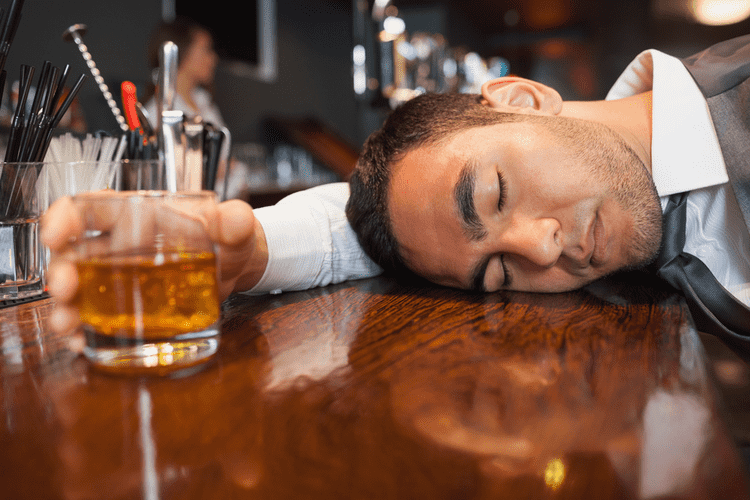It can help you feel less shy, give you a boost in mood, and make you feel generally relaxed. In fact, alcohol’s effects can be similar to those of antianxiety medications. If you are more prone to these disorders, you may have a more extreme reaction to alcohol withdrawal than someone who does not suffer from panic attacks. These effects are particularly visible the day after drinking when the hangover begins to set in. As the sedative effect of alcohol wears off, you may experience a spike of anxiety or panic as your body begins to withdraw from the substance.

Drinking excessive amounts of alcohol can also have noticeable physical and mental consequences. Over time, consuming too much alcohol can lead to blackouts, loss of memory, and even brain damage (especially if it causes other health problems, such as liver damage). These issues can create more anxiety as you cope with their symptoms. If you reach for alcohol in an effort to avoid experiencing a panic attack or feelings of anxiety, you can quickly become trapped in a debilitating cycle that becomes very difficult to break. As well as being an unhealthy coping mechanism, cases of alcohol-induced panic attacks prove that alcohol can actually be the cause of anxiety and panic rather than the cure. Your body, however, is always looking to establish equilibrium, or balance.
Anxiety and depression
Alcohol-induced anxiety can last for several hours, or even for an entire day after drinking. Drinking alcohol can have serious consequences if you’re being treated for anxiety. Having a drink might seem like a good way to ease anxiety, but you may be doing more harm than good. Typically, he offers this does alcohol cause panic attacks in conjunction with supportive therapy, motivational interviewing, and/or cognitive behavioral therapy in 30-minute follow-up visits. Occasionally, Dr. Lin may recommend that additional therapy is needed and ask that you bring a therapist into your care team in order to provide the best outcome.
- Successful treatment can also help you overcome fears of situations that you’ve avoided because of panic attacks.
- A red flag for someone who may be wondering whether or not they have an alcohol use disorder, Koob says, is if they self-medicate anxiety with more alcohol.
- If you’re still feeling anxious after a few weeks, contact your GP surgery.
- Before trying herbal remedies or dietary supplements, talk to your doctor.
At CalmClinic, we believe that information is only as helpful as its accuracy. That is why all of the content that we publish is always reviewed and analyzed by professionals in the psychology and healthcare fields. Treating panic attacks often involve different therapies, such as cognitive behavior therapy (CBT). CBT involves helping you change how you think and respond to things around you, which can help prevent panic attacks. Panic attacks and psychosis are two completely distinct experiences that cause different symptoms and have different underlying causes.
Panic attacks and panic disorder
As the initial calm feeling fades you can feel anxiety as the effects of the alcohol wear off. There are no specific studies that suggest that one type of alcohol can affect anxiety levels more than other types of alcohol. While some people may believe that wine and beer may cause less anxiety than hard liquor due to its alcohol content, this is not true. It’s not necessarily the type of alcohol you drink that can affect your levels of anxiety, but rather anxiety is related to the amount and frequency of alcohol use.
Hangover Anxiety: Causes, Symptoms, and Preventative Tips – PsychCentral.com
Hangover Anxiety: Causes, Symptoms, and Preventative Tips.
Posted: Tue, 30 May 2023 07:00:00 GMT [source]
This increase can lead to a drop in your blood sugar (glucose) levels, and when this is too low it is known as hypoglycaemia. The symptoms of low blood glucose include trembling, an elevated heart rate, and feeling anxious or in a low mood. The most common symptoms of a panic attack include a racing heart, sweating, trembling, and shortness of breath, but some people also report feeling like they’re dying or having a heart https://ecosoberhouse.com/article/alcohol-and-anxiety-can-drinking-cause-panic-attacks/ attack. And it can be pretty damn hard to calm yourself down when you’re hit with a cascade of daunting feelings at once. So when a panic attack strikes, Dr. Baker swears by one trick to help her stay grounded—and it’s surprisingly simple. Panic attacks are a symptom of a variety of anxiety disorders, such as panic disorder, post-traumatic stress disorder, phobia-related disorders, social anxiety disorder, and more.
Charitable Care & Financial Assistance
Studies have also been carried out to support this fact, and according to the Anxiety and Depression Association of America, at least 7% of Americans have anxiety related to alcohol usage. Panic attacks may come on suddenly and without warning at first, but over time, they’re usually triggered by certain situations. However, you can make lifestyle changes to help you reduce your anxiety as well as learn to cope with it. Alcohol is a sedative and a depressant that affects the central nervous system. Dr. Lin has held an academic appointment at UTHealth, and he has spent his professional career supervising and teaching medical students and psychiatry residents.

This can make anxiety and stress even more difficult to cope with. The more you drink, the more likely you are to induce chemical changes that can trigger panic attacks and other health problems. As a result, the best way to prevent panic attacks after drinking is to know your limits and avoid drinking to excess. It does so by binding to GABA receptors in the brain—which helps your body to relax and your mind to feel calm. Alcohol is believed to mimic this effect by also binding to GABA receptors.


